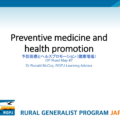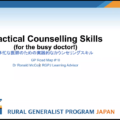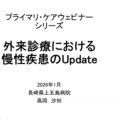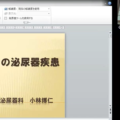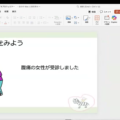『ウェビナー報告日誌「GP Road Map」編 vol.1 ―GP Road Map: Chronic Disease Management ―』
離島へき地医療の “本場” として知られるオーストラリアの第一線にて、長年にわたりGPとして活躍されているロナルド先生が講師を務めてくださるウェビナー「GP Road Map」。
毎月一つのテーマに絞り、ロナルド先生の培われてきた実践的な知識や技術を惜しげなく共有してくださるのが大きな魅力となっている「GP Road Map」ですが、今月は「慢性疾患:喘息」に焦点を当てた講義となりました。
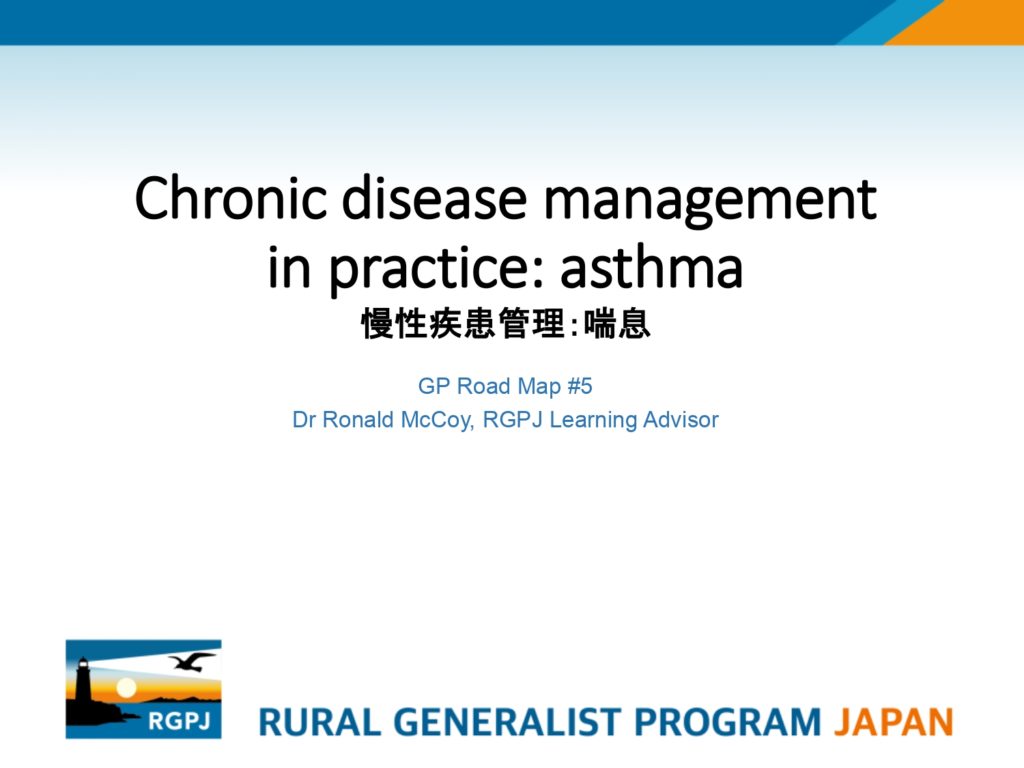
喘息は、今なおオーストラリアでも非常に一般的な疾患の一つで在り続けており、オーストラリアの医療界における喘息との戦いの歴史は、一朝一夕では為し得ない数々の試行錯誤の積み重ねだと、ロナルド先生は語られています。
また、オーストラリアにおける「喘息による死亡率」は、世界的に見ても高い水準にあるらしく、その中でも特に女性患者の死亡率が高い割合を占めているそうなのですが、その原因については今なお解明されていないとのこと。
ただし、オーストラリアの医師たちも決して手をこまねいて状況を傍観している訳もなく、彼らの長年にわたる尽力の甲斐あって、喘息による死亡者数は年々、確実かつ着実に減少してきているそうです。
なお、ロナルド先生は今回、喘息における症状の段階に応じた治療法について、実際にオーストラリアの医療の現場で用いられているガイドラインを引用しながら、丁寧に解説してくださいました。
・喘息は、如何に症状をコントロールするかが肝心
・実際の現場においては、とにかく(日本の)ガイドラインに従って対処することが重要
ロナルド先生は今回、講義の中で特に上記二点の重要性について強調。
そして、講義は次第に、「喘息」という特定の疾患から「慢性疾患管理」というより大きな枠組みへと、話の焦点が移っていくこととなりました。
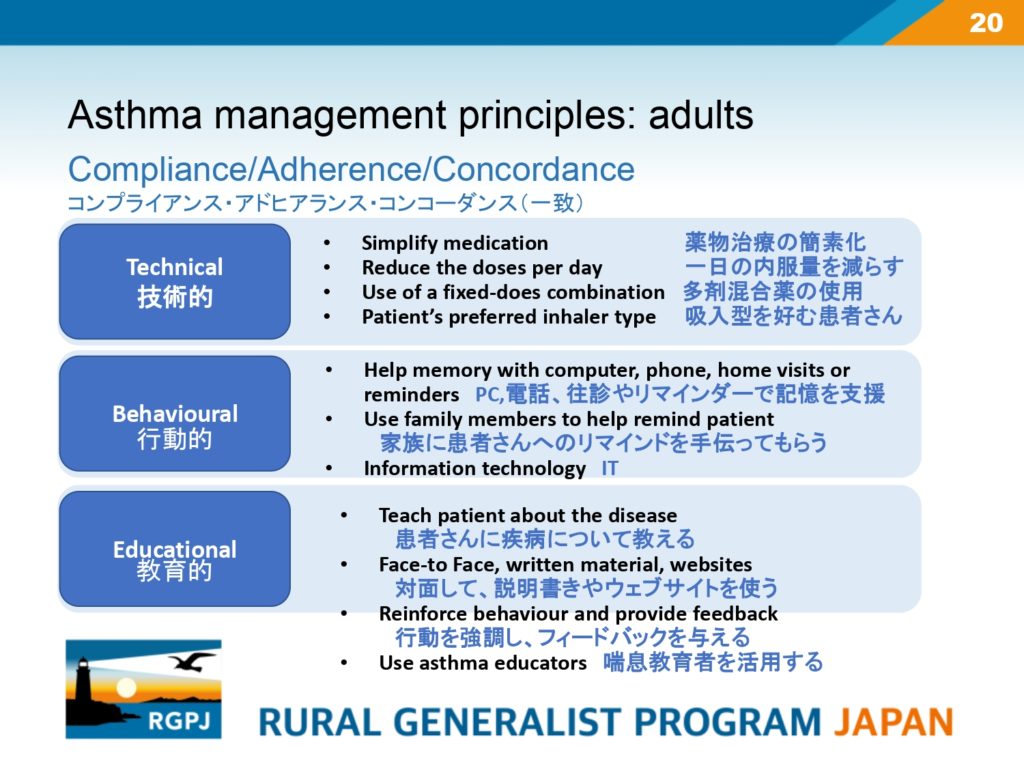
「慢性疾患の治療においては、患者による自己管理が主軸になるため、患者を如何に教育するかが重要となる」
「慢性疾患における “治療の失敗” とは、『患者が途中で薬の服用を止めてしまう』ことを意味する」
慢性疾患管理における「治療」に対する考え方や心構えについて、自身の経験に基づいてそう語られるロナルド先生。その難しさについても、率直に指摘されました。
そして、難しいことだからこそ、家族や介護者など周囲の人々の力やITの利便性などの助けを借りることが重要であり、「患者を批評する立場」ではなく、「患者と同じ目線に立って問題の解決策を探ろうとする姿勢」が大事なのだと、ロナルド先生は強く静かに語られました。
なお今回、講義の最後に設けられた質疑応答の時間においては、喘息の治療において用いられる「スペーサー(spacer)」の実践的な使用方法に関する質問が、講義に参加した研修生たちから寄せられる一幕も。
同じく治療によく用いられる「吸入器」との違いにも触れつつ、その使い方や利点などについて、ロナルド先生は適確に答えてくださいました。
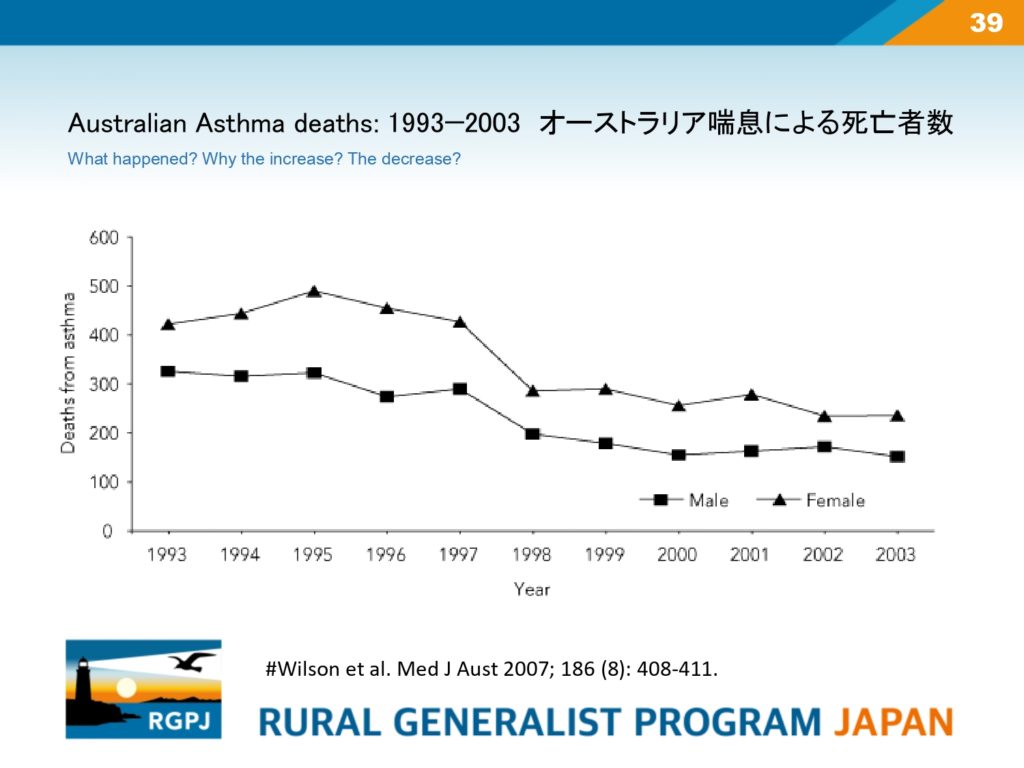
「オーストラリアにおける喘息による死亡率が改善されてきたのは、小さな努力をこつこつと地道に積み上げ続けてきた結果であり、それは決して簡単なことではないが、それこそが慢性疾患管理というものだ」
最後にそう、強い実感のこもった言葉で講義を締め括るロナルド先生の姿が、何とも印象的に映った今月の「GP Road Map」でした。
The GP Road Map, one of the regular monthly webinars for RGPJ registrars, has been held this month too. Dr. Ronald participated in the webinar as a lecturer as always.
Actually, the main theme of this webinar was Chronic disease management in practice: asthma.
In the lecture, he shared really practical knowledge and skills about treatments for asthma with the registrars, so they were able to learn many things that they didn’t know and deepen the knowledge that they had already known.
According to Dr. Ronald, asthma had been one of the very common chronic diseases in Australia for a very long time. Moreover, Australia had maintained the case fatality rate of asthma at high level in the world.
Thanks to many of continuous trial and error by Australian doctors, however, the fatality rate has been steadily decreasing in recent years, he added.
Also, Dr. Ronald taught the various treatment measures according to the level of the symptoms of asthma by actually drawing the current Australian guidelines.
And he emphasized two important tips in treatments for asthma in the lecture:
– how to properly control the symptoms is a really important factor in the process of treatments for asthma.
– it is an essential mind-set in actual clinical practices to adhere to the country’s guidelines devotedly.
By the way, he also mentioned the difficulties in the management of chronic diseases including asthma through the lecture.
He emphasized again that a self management by patients themselves play a very important role in the process of chronic diseases management, so how to educate them properly also occupies an really important place in the process.
The “failure” in that process means that patients quit to take medicines before they complete the treatment process provided by doctors, Dr. Ronald said.
“The reason why the case fatality rate of asthma in Australia has been decreased is because of an accumulation of tiny steps for problem resolution over many years. It definitely is not easy task. But, that is exactly the essence of chronic disease management.”
Dr. Ronald gently but emphatically told us so at the end of the lecture. All the registrars at the webinar listened deeply to Ronald’s wisdom with earnest eyes.
Again this time, they looked they were able to share a very fruitful time with each other through the webinar.

